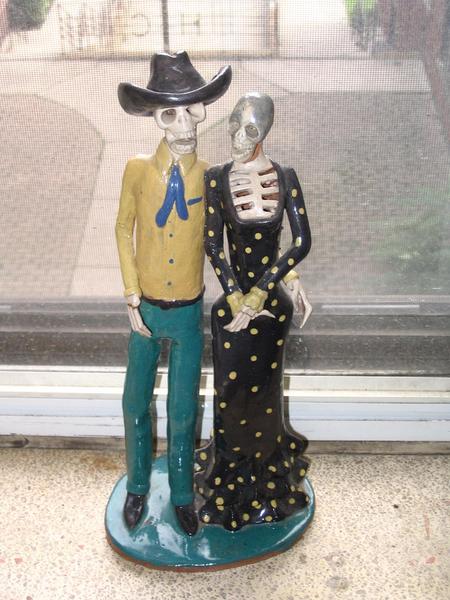file under: the usual melodrama
yesterday my curiosity got the better of me. i found myself going to a matinee showing of apocalypto, after about 8 hours of deliberation on the ethics of such a move.
that's no joke, either. while at work, i spent a good amount of time thinking through whether or not it was acceptable to support a movie produced and directed by a religiously fanatical homophobic anti-semite, no matter how visually stunning the movie might be.
probably over a year ago, N and i had a very similar discussion in our kitchen concerning reggae performers. could we listen to buju banton with a clear conscious, for example? and if so, were we obligated to determine how other performers felt about gays? or women? or god? or the war in iraq? clearly, that very quickly becomes a ridiculously slippery slope that left us scratching our heads over where to draw the line on such things (open advocacy of hate notwithstanding, as "boom bye bye" helpfully illustrates).
we finally returned to that old, well-worn maxim - that artwork must be judged on its own merits, however morally relativist that may sound. how basic is that? it's application to possibly detestable artists is more involved than you might initially think, though.
and on this point, apocalypto might complicate mel's current status as sociopath du jour. the film turned out to be little more than an action movie, albeit set in a uniquely exotic time and place. yes, gibson does try to tie in the decadence and dissolution of the mayan culture with the state of affairs today, but any parallels he hoped to highlight only prove to muddle whatever statement he was trying to make with them. if we think of america today as the maya of yesterday, then whose sympathetic perspective are we watching this film from? the insurgents? is the film just a warning to our leaders about the history of empires? does that mean he's heralding the "new beginning" that christianity clearly represents in the timeframe of the movie at hand? does that mean that islamofascists will see this as an inspiring fable about the fall of the west? i doubt gibson intended that; whatever he did intend is equally unclear.
it makes one wonder whether all the leftover controversy stirred up from the passion of the christ was used to attract attention to an otherwise predictable movie. the only food for thought that apocalypto ultimately gives boils down to just that: whether or not gibson, who plays a good crazy person, would be savvy and manipulative enough to stir the entertainment pot so effectively.
that's no joke, either. while at work, i spent a good amount of time thinking through whether or not it was acceptable to support a movie produced and directed by a religiously fanatical homophobic anti-semite, no matter how visually stunning the movie might be.
probably over a year ago, N and i had a very similar discussion in our kitchen concerning reggae performers. could we listen to buju banton with a clear conscious, for example? and if so, were we obligated to determine how other performers felt about gays? or women? or god? or the war in iraq? clearly, that very quickly becomes a ridiculously slippery slope that left us scratching our heads over where to draw the line on such things (open advocacy of hate notwithstanding, as "boom bye bye" helpfully illustrates).
we finally returned to that old, well-worn maxim - that artwork must be judged on its own merits, however morally relativist that may sound. how basic is that? it's application to possibly detestable artists is more involved than you might initially think, though.
and on this point, apocalypto might complicate mel's current status as sociopath du jour. the film turned out to be little more than an action movie, albeit set in a uniquely exotic time and place. yes, gibson does try to tie in the decadence and dissolution of the mayan culture with the state of affairs today, but any parallels he hoped to highlight only prove to muddle whatever statement he was trying to make with them. if we think of america today as the maya of yesterday, then whose sympathetic perspective are we watching this film from? the insurgents? is the film just a warning to our leaders about the history of empires? does that mean he's heralding the "new beginning" that christianity clearly represents in the timeframe of the movie at hand? does that mean that islamofascists will see this as an inspiring fable about the fall of the west? i doubt gibson intended that; whatever he did intend is equally unclear.
it makes one wonder whether all the leftover controversy stirred up from the passion of the christ was used to attract attention to an otherwise predictable movie. the only food for thought that apocalypto ultimately gives boils down to just that: whether or not gibson, who plays a good crazy person, would be savvy and manipulative enough to stir the entertainment pot so effectively.


0 Comments:
Post a Comment
Subscribe to Post Comments [Atom]
<< Home